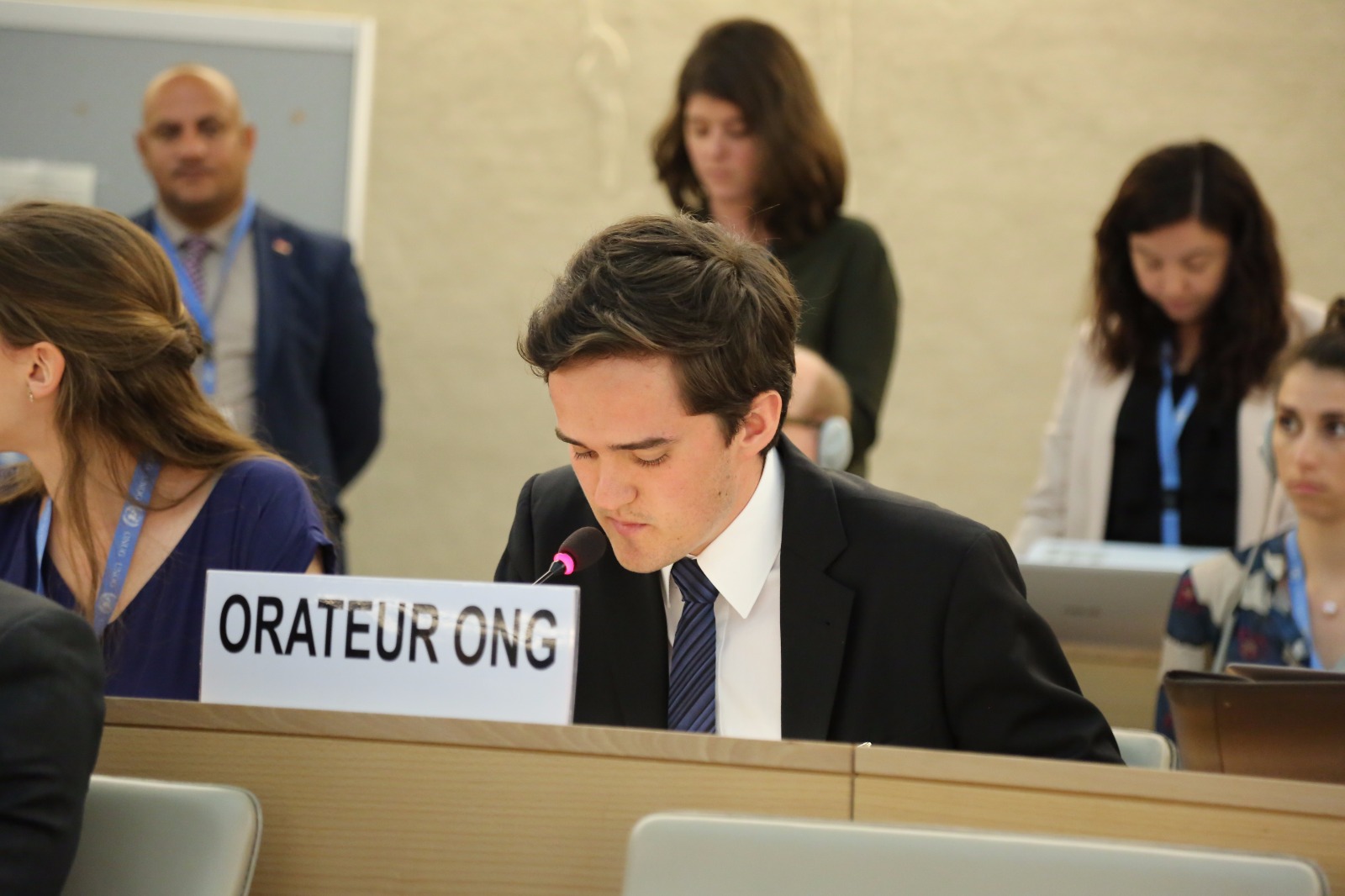On 13 June 2017, Moritz Neubert delivered an oral intervention on behalf of ADHRB under the 35th session of the Human Rights Council’s Item 3 interactive dialogue with the Special Rapporteur on the right to freedom of expression and opinion. In his intervention, Neubert raised the issue of Bahrain’s restriction of free expression, including of traditional media, like al-Wasat – Bahrain’s only independent newspaper – and social media – such as the government’s prosecution of Nabeel Rajab for tweets and retweets. Please continue reading for the full text of his remarks, or click here for a PDF of his intervention.
Mr. President,
IDO and ADHRB share the rapporteur’s concerns over the restriction of free expression in the digital age. We would particularly like to draw attention to the suppression of online traditional and social media. In the Arab Gulf states, for example, governments have effectively criminalized online dissent and free press, and respond with harsh punishments for “violators.”
In Bahrain, for example, human rights defender Nabeel Rajab faces up to 18 years in prison for tweets, retweets, and media interviews in which he criticized the government’s use of torture and its role in the Yemen war. Similarly, Bahraini authorities charged human rights lawyer Mohamed al-Tajer with insulting government institutions online, citing a private WhatsApp voice message allegedly sent by al-Tajer in which he warns against the threat of government surveillance and violations of privacy.
Early last week, the Bahraini Information Affairs Ministry issued a statement saying that Bahrain’s only independent newspaper, al-Wasat, would halt issuance and circulation until further notice. The closure was attributed to al-Wasat’s “repeated publication and dissemination [of content] inciting disunion within society and affecting [Bahrain’s] relations with other countries.” Al-Wasat’s online publications were also halted by government order in January of this year immediately following the extrajudicial execution of three torture victims.
Then, late last week, in response to the intra-GCC political crisis, the Bahraini Interior Ministry published a statement, in the name of national security and the supreme national interest, saying that it is the “sovereign right of Bahrain [that] any show of support for [Qatar] or objection to Bahrain’s actions… in the form of tweets, posts or any spoken or written word will be considered a crime punishable… [by] a jail term of up to five years and [a] fine.”
As demonstrated by these cases, Bahrain continues to utilize expansive legal and executive frameworks to undermine the right to privacy and restrict free expression online. We therefore ask: What methods of protection or independent accountability mechanisms exist, if any, for targeted groups, like civil society, free press, human rights defenders or political dissidents to seek protection against reprisals by authoritarian governments in response to their free expression in the digital age?
Thank you





